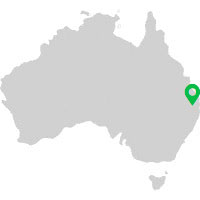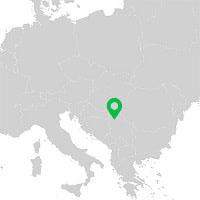

It is a sure nightmare if your company is tagged as a violator of anti-spam policies of Google, one of the commonly used search engines in the world. This will dramatically affect not only your site traffic but your site visibility as a whole. Imagine, being removed from the search engine’s index? Especially at this time when people make their purchases online, this will definitely hurt your sales and your entire business. So if you do not want to wake up one day dealing with this terrifying circumstance, you will have to avoid these things:
Google shares information with web developers or website owners like you so you can build a strong relationship with them – of course, minus the spam penalties. This includes a guideline that will assist the search engine in visiting, indexing and ranking your site. More importantly, this also gives input on what Google does not want your website or company to practice only to improve your search engine ranking. Here are some of them:
Some website builders intentionally colour text or links with the same shades of the background so they are not visible on the website but readable by search engines. Either they lack the ability to insert them on their content or they have no articles to show at all. Hence, they go for this shameful trick. What they do not know is that Google knows how to spot one.
This frustrates users very much, especially if they are in a hurry to find the information that they are searching for. They feel cheated because it is different from the description they read in the search engine results list. Google does not want to give poor service to its searchers; hence, it makes sure that this happens. If your website is then reported as spam by the users, you will absolutely receive a penalty.
A number of website owners or developers, in their aim to know how this specific search engine ranks web pages, make use of a software program that automatically sends possible user queries to Google. Once it detects that a particular IP address (which may probably belong to these dishonest individuals) is questionably performing this ‘task’, it may subsequently ban the IP address from accessing Google, as well as the website. This is to protect their users from ‘unfair practices’.
Google does not allow websites to use the same content. It hates plagiarism. It hopes to protect the rightful owner of the article. Soon as it discovers that you are using the content of other sites without their knowledge, you will not only be charged with plagiarism but you will also receive a penalty from them. What do you want then – be removed from Google index or write your own content? You make a choice.
Another common issue that can get you stuck with penalties is keyword stuffing. Namely, years ago, Google’s algorithms don’t really pay any attention to keyword stuffing. Keywords attracted and influenced your rankings, and so Google rewarded you accordingly. This lead to content turning into a mess of keywords and key phrases, making it practically unreadable. People essentially sacrificed quality for SEO pull. For this reason, Google will now notice when you’re trying to manipulate it. In order to avoid this, simply use keywords naturally and organically.
Google will penalize anybody who offers pirated content. No matter what kind of content it is, no matter if it’s already free, or if it’s created by a malicious company, presenting this kind of content on your website will get you penalized. The form of the content also doesn’t matter. TV shows, software, movies, music… None of that is allowed.
There is a concept online that sprung up as SEO began to take hold. These are private blog networks. These networks are specially designed to set up many blogs that don’t really have content. Or, rather, they do have content, it’s just that it’s of very low quality. Namely, these blogs and their content just exists to hold backlinks. And these backlinks will be, of course, used by people who pay for them. Know that Google cracks down often, and cracks down hard, on these blogs and networks. They determine who set these up, and who uses them, rather quickly.
Furthermore, if you get offers to sell links, turn them down. You worked hard on getting your page rankings high, and the last thing you want is to lose everything because Google detected your site as a link farm.
There are some users that will set up their pages in such a way in which when a desktop user access it, it will behave normally. However, if one is to access it through the search engine on their mobile phone, they will end up being redirected to another, completely unrelated page. They probably do this because it’s much more noticeable when done over a PC.
Know that not every link is valued in the same manner. For example, with no fault of your own, you may end up with content filled with links that lead to spam sites. Some of your competitors may even set up sites like this and create backlinks that lead to you. This can cause Google to penalize you. However, there are some tools (like the disavowal tool, or marking said links as “no follow”)
There are certain subjects you should stay away from if you want to create a good online presence. While this isn’t a guarantee that you will be noted as spam, there is a high chance that you will. Namely, things like payday loans, gambling, grey-area pharmaceuticals, pornography – all these tend to be rather spammy websites. If you are tied to them, Google may penalize you simply through guilt-by-association.
There are other reasons why Google penalizes companies who own websites. The items above are only some of them. You will have to make yourself well-informed about this so you can prevent your website from receiving punishments. Remember, all it takes is honest-to-goodness SEO techniques and Google will welcome you in their search engine list with wide-open arms.


How to Develop a Unique Digital Marketing Strategy for E-Commerce


How to Generate Traffic from Facebook Page








Dunavska 13
21000 Novi Sad, Serbia